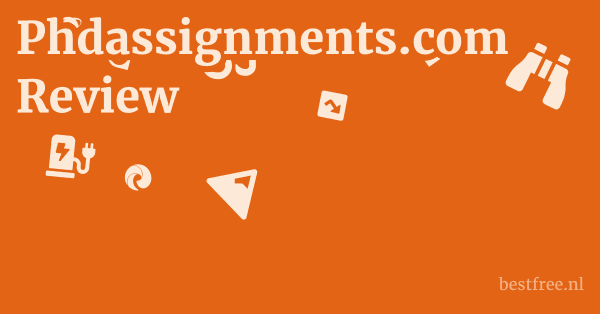The question of whether phdassignments.com is a “scam” requires a nuanced answer. It’s not a scam in the sense that it likely takes your money and delivers absolutely nothing (though quality and service are debatable). Instead, it operates within a morally and ethically ambiguous grey area, often referred to as contract cheating, which itself can be considered a form of academic fraud. The “scam” lies in the false promise of genuine academic success and the inherent risks it pushes onto unsuspecting students.
Read more about phdassignments.com:
Phdassignments.com Review: An Ethical Stance on Academic Integrity
Phdassignments.com Review & First Look
Phdassignments.com: The Ethical Disadvantages
Is Phdassignments.com Legit? Examining Credibility and Transparency
Phdassignments.com Pricing & Value Proposition
Operational Deceptions and Inconsistencies
Several elements on the phdassignments.com website raise serious questions about its transparency and honesty, leaning towards deceptive practices.
- The “Zeroes” Contradiction: As previously highlighted, the “Facts about our assignment help” section displaying “0 research writers,” “0 customers served,” “0 orders completed,” and “0 Countries” while simultaneously claiming “10 Years as Market Leader” and “number 1 rated” is a blatant contradiction.
- Intentional Misdirection: This inconsistency is either a severe web design oversight (unlikely for a “market leader”) or a deliberate attempt to avoid showing real, perhaps unimpressive, statistics. Such practices are common in services that lack genuine transparency.
- Trust Erosion: For a user, this immediately signals that the website is not entirely truthful, making all its other claims suspect.
- Unverifiable Testimonials and Writer Profiles: The testimonials lack any verifiable links or external presence, and the “best essay writers” profiles are static text without any clickable links to their alleged academic or professional credentials.
- Lack of Authenticity: This setup makes it impossible to verify the authenticity of their claimed “satisfied customers” or the expertise of their “PhDs.” Many questionable services use generic or fabricated testimonials.
- Absence of Real-World Presence: The lack of a physical address or a direct phone number, alongside a generic “support” email, diminishes trust. Reputable businesses typically have multiple, verifiable contact points.
- Anonymity: This level of anonymity allows the operators to function with less accountability, which is a common characteristic of services that might engage in legally or ethically dubious activities.
The “Academic Scam” Angle
Beyond simple monetary fraud, the core service itself can be viewed as an academic scam because it exploits students’ vulnerabilities and encourages them to engage in dishonest practices that carry severe consequences.
- False Promise of “Academic Success”: The website promises “YOUR ACADEMIC SUCCESS IS OUR MISSION.” However, academic success earned through contract cheating is a false success. It’s built on deception and can lead to severe penalties, including expulsion.
- Misleading Solution: It offers a seemingly easy solution that, in reality, creates a higher risk of academic failure and personal shame.
- Exploiting Pressure: It preys on students who are genuinely struggling with workload, deadlines, or language barriers, offering a shortcut that ultimately harms them.
- Undermining Genuine Learning: The fundamental “scam” is that students pay money not for learning, but for avoiding it. This devalues the entire educational journey.
- Skill Deficiency: Students who rely on such services graduate without the critical skills and knowledge expected of their degree, which is a disservice to themselves and future employers.
- Ethical Compromise: It encourages students to compromise their ethics, which is a far greater loss than any monetary cost.
- Risk of Exposure: The risk of being caught by plagiarism detection software or university disciplinary committees is very real and often results in severe consequences that far outweigh the initial fee paid to the service.
- Data Sharing Concerns: While not explicitly mentioned, some unethical services might misuse student data or even threaten exposure if disputes arise.
In conclusion, while phdassignments.com might not be a direct financial scam in the sense of stealing money without providing any service, it certainly operates with deceptive transparency and its core offering facilitates academic fraud. From an ethical standpoint, particularly in Islam, engaging with such a service is tantamount to participating in a dishonest transaction, making it a “scam” against one’s own integrity and academic future. Students are strongly advised to avoid it and seek legitimate, ethical forms of academic support.
Phdassignments.com Pricing & Value Proposition|
0.0 out of 5 stars (based on 0 reviews)
There are no reviews yet. Be the first one to write one. |
Amazon.com:
Check Amazon for Is Phdassignments.com a Latest Discussions & Reviews: |

Leave a Reply